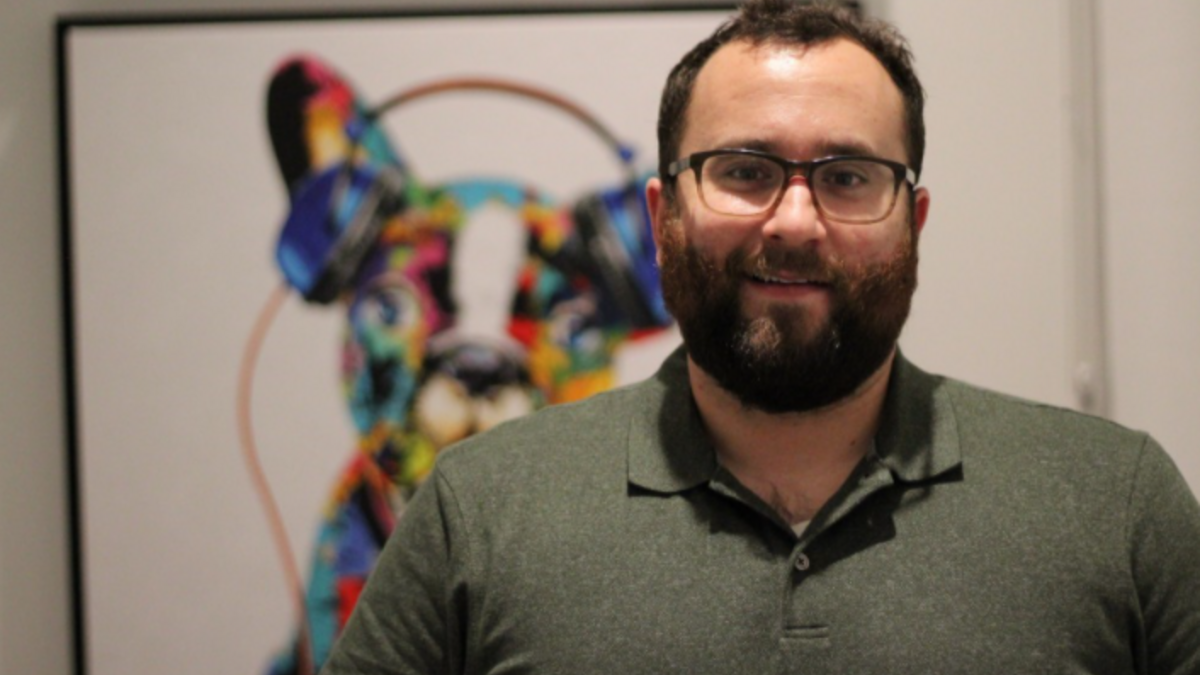Religious studies graduate earns doctorate for research on Indonesian singer

James Edmonds is earning his PhD in religious studies.
Editor's note: This story is part of a series of profiles of notable spring 2021 graduates.
James ‘Jamie’ Edmonds grew up on a dirt road in York County, South Carolina and spent a considerable amount of time wandering the woods. As he considered his next step in life, going to college or working in an automotive shop, the Sept. 11 attacks happened.
“This sent my small town into a bit of a frenzy,” Edmonds said. “I became very aware of the hatred and violence that was a part of where I lived. So many friends and their parents appeared to hate this massive group of people who I knew nothing about.”
He had an interest in religion and was very confused and concerned about the way people were viewing the Islamic religion. So when he went to college, he decided to study religion. Now, he is graduating with his PhD in religious studies from the School of Historical, Philosophical and Religious Studies.
His dissertation evaluates the popularity of an Indonesian singer and the performances he gives.
“For the last seven years, I have been following the popular Islamic performances by Habib Syech bin Abdul Qadir Assegaf around Indonesia and other parts of Asia,” Edmonds said. “He brings tens of thousands of people together to listen and participate in these devotional Islamic signs, and I have traveled extensively with him, his musicians and the crew to better understand what makes these events so popular.”
In addition to earning his doctorate, Edmonds received over 20 awards and scholarships while attending Arizona State University including numerous Foreign Language and Area Studies fellowships and a Fulbright scholarship.
Question: What was your “aha” moment, when you realized you wanted to study the field you majored in? (Might be while you were at ASU or earlier.)
Answer: My aha moment for continuing to study religion passed my bachelor’s was a trip to India with my professors from the College of Charleston. I spent about six weeks traveling with my professors across India. This opened my eyes to an incredibly rich and complex world that I wanted to understand. I will never forget standing at the base of a Buddhist monastery or seeing a sound and the Hare Krishna sound and light show we attended.
Q: What’s something you learned while at ASU — in the classroom or otherwise — that surprised you or changed your perspective?
A: Everyone from students to the most advanced professor is faking it until they make it. There is no perfect measure of progress, and the more you try to force an arbitrary set of measures on individual situations, the more stress you create. This drive for perfection and progress often hinders learning.
Q: Why did you choose ASU?
A: I wanted to work with certain professors at ASU who did things that I was also interested in.
Q: Which professor taught you the most important lesson while at ASU?
A: No singular professor taught me the most important lesson. I had the opportunity to learn so much from so many professors both inside and outside of the classroom that it would be hard to choose.
Q: What’s the best piece of advice you’d give to those still in school?
A: Stop restricting yourself to things, people, experiences that you think you deserve or are interested in. Explore the vastness of knowledge with humility and curiosity.
Q: What was your favorite spot on campus, whether for studying, meeting friends or just thinking about life?
A: I am going to be honest. I spent a lot of time in an office with no windows. So, anytime I got to see the sun and walk around campus was awesome.
Q: What are your plans after graduation?
A: I am currently working several jobs including cybersecurity and database management. I hope to purchase a house in the Phoenix area, support my wife's passions, have some children, start a garden and build furniture out of wood.
Q: If someone gave you $40 million to solve one problem on our planet, what would you tackle?
A: Education inequality.
More Arts, humanities and education

School of Social Transformation faculty member assumes new title with NSF
School of Social Transformation faculty member and Founding Executive Director of the Center for Gender Equity in Science…

ASU's Neal Lester reflects on life, death of poet Nikki Giovanni
When Neal Lester heard on Monday that poet and activist Nikki Giovanni had died, the news hit hard.Lester, the founding director…

Learning by stepping outside
By Adriana MaestasAmid a world increasingly captivated by all things digital, more than 200 Arizona teachers have crafted…